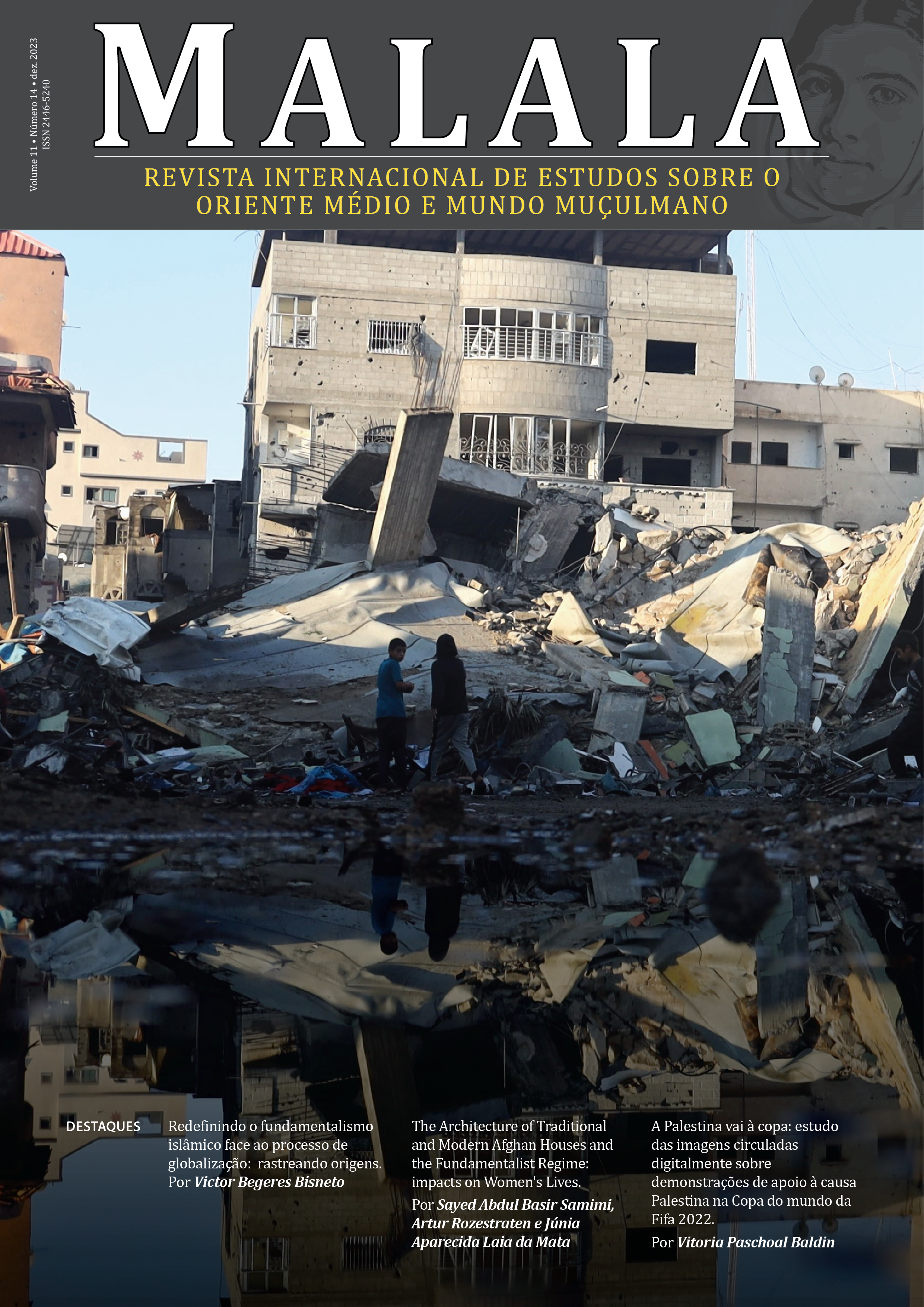Muslim women and the use of hijab in the west: the importance of multinormativity in guaranteeing individual freedoms
DOI:
https://doi.org/10.11606/issn.2446-5240.malala.2023.212048Keywords:
Individual Freedoms, Women Rights, Hijab, Muslim Women, Fundamental RightsAbstract
This article aims to investigate the issue around the use of hijab, the scarf used by part of the women in the Islamic religion, in the context of the West, especially in Europe, where some countries even forbid its use, showing an evident act of religious intolerance. With a deep analysis, both the Islamic feminism movement, which defends the freedom of choice of using the hijab as an identity and faith expression, and the contrary current, which argues that the religion itself grants this equality between men and women, are explored. The key point of this article is the multinormativity discussion, in a global context, as a way to defend the individual freedom of women in their choice of clothing, independently of their religious faith, and to avoid state interferences in personal religious issues. It argues that the respect to multinormativity is essential to ensure the cultural and religious diversity in western democracies, reinforcing the respect to human rights and individual autonomy. The results of this research point to the need for a plural approach that is not intolerant on the part of the western “democracies,” to recognize the religious and cultural diversity of contemporary societies. Also, it highlights the importance of promoting a constructive intercultural dialogue, seeking solutions the respect the human dignity and freedom of expression of Muslim women. Finally, we hope that this article contributes to a more empathetic and understanding look on the hijab issue in the West, promoting a harmonious coexistence between different cultures and religions.
Downloads
References
ALVES, Vivian de Freitas; MERCHER, Leonardo. A ascensão da islamofobia na Europa no século XXI. Trabalho de Conclusão de Curso, Centro Universitário Internacional, 2017. Disponível em: https://repositorio.uninter.com/bitstream/handle/1/263/1222710%20-%20VIVIAN%20ALVES.pdf?sequence=1&isAllowed=y. Acesso em: 5 dez. 2023.
BEZA, Ana Paula Maciel. A proibição do uso do véu islâmico na frança: uma análise sobre o choque cultural na perspectiva ocidental. Trabalho de Conclusão de Curso, Universidade do Sul de Santa Catarina, 2021. Disponível em: https://repositorio.animaeducacao.com.br/bitstream/ANIMA/24704/1/TCC%20RI%20-%20ANA%20PAULA.pdf. Acesso em: 5 dez. 2023.
CASTILHO, Natalia Martinuzzi. “Pensamento descolonial e teoria crítica dos direitos humanos na américa latina: um diálogo da partir da obra de Joaquín Herrera Flores”. Dissertação de mestrado, Universidade do Vale do Rio dos Sinos, 2013.
COSTA, Inês Granja. O tribunal europeu dos direitos humanos e os símbolos religiosos: o uso do véu muçulmano na Europa do século Xxi. Dissertação de mestrado, Universidade Católica Portuguesa, 2017. Disponível em: https://www.om.acm.gov.pt/documents/58428/179891/Tese+49.pdf. Acesso em: 5 dez. 2023.
CRENSHAW, Kimberlè Williams. Beyond Racism and Misogyny: Black Feminism and 2 Live Crew. In: MATSUDA, Mari J.; III, Charles R Lawrence; DELGADO, Richard; CRENSHAW, Kimberlè Williams. Words That Wound Critical Race Theory, Assaultive Speech, and the First Amendment. Nova Iorque: Routledge, 2018. p. 1-155.
DE FRANCO, Clarissa. “Feminismo islâmico face ao feminismo secular: uma nova consciência de gênero de um oriente que rejeita a ocidentalização”. Último Andar, n. 27, p. 84-92, 2016. Disponível em: https://revistas.pucsp.br/index.php/ultimoandar/article/view/27095. Acesso em: 5 dez. 2023.
EFERREIRA, Neylane Naually Souza; FIGUEIREDO, Nielle Beatriz Ribeiro de; CASTRO, Brenda Thainá Cardoso de. “O feminismo no âmbito das relações internacionais: ocidente x oriente e o protagonismo da mulher muçulmana”. Malala, v. 8, n. 11, p. 71-86, 2020. DOI: 10.11606/issn.2446-5240.malala.2020.161694.
JERÓNIMO, Patrícia. “Intolerância religiosa e minorias islâmicas na Europa a censura do “islão visível”: os minaretes e o véu: e a jurisprudência conivente do tribunal europeu dos direitos do homem”. In: COLÓQUI LUSO-ITALIANO SOBRE LIBERDADE RELIGIOSA, 1., 2014, Lisboa. Anais […]. Lisboa: Alamedina, 2014.
LIMA, Cila. “Um recente movimento político-religioso: feminismo islâmico”. Estudos Feministas, v. 22, n. 2, 2014. Disponível em: https://www.scielo.br/j/ref/a/Pkz877QxtTnmTCZSYjFbNBb/?format=pdf&lang=pt. Acesso em: 5 dez. 2023.
MS. MARVEL. Produzido por Kevin Felge. Washington, DC: Marvel Studios, 2022. 6 episódios.
NEUMANN, Mariana Menezes. “Por detrás dos véus: a mulher muçulmana e as revoluções turca e iraniana”. Papel Político, v. 1, n. 2, 2006. Disponível em: https://www.redalyc.org/articulo.oa?id=77716567008. Acesso em: 5 dez. 2023.
PRADO, Caio; PAGLIUSI, Daniel; SARMET, Gabriela; NEVES, Thayná. “Relativismo cultural e aplicação seletiva dos direitos fundamentais: a questão dos direitos humanos na Europa; à luz da ‘questão do véu’ na França”. Revista do Programa de Direito da União Europeia, v. 2, n. 5, p. 11-29, 2015. Disponível em: https://periodicos.fgv.br/rpdue/article/view/68226/65841. Acesso em: 5 dez. 2023.
RIBEIRO, Djamila. O que é lugar de fala? Belo Horizonte: Letramento, 2017.
RODRIGUEZ, José Rodrigo. Direito das lutas: democracia, diversidade, multinormatividade. São Paulo: LiberArs, 2019.
RODRIGUEZ, José Rodrigo. Filosofia do direito multinormativa: para um universalismo policêntrico e sensível. Projeto de Pesquisa 2020-2024, Universidade do Vale do Rio dos Sinos, 2020.
SALEM, Sara. Feminismo islámico, interseccionalidad y decolonialidad. Tabula Rasa, n. 21, p. 111-122, 2014. Disponível em: https://tinyurl.com/3m8r7m24. Acesso em: 5 dez. 2023.
SILVA, Junio. “Senado francês proíbe uso de véu islâmico em eventos esportivos”. Metrópoles, 19 jan. 2022. Disponível em: https://www.metropoles.com/mundo/senado-frances-proibe-uso-de-veu-islamico-em-eventos-esportivos. Acesso em: 5 dez. 2023.
SZKLARZ, Eduardo. “Sob o véu”. Aventuras na História, n. 84, p. 28, 2010.
Downloads
Published
Issue
Section
License
Copyright (c) 2023 Gabrielle Souza O' de Almeida

This work is licensed under a Creative Commons Attribution-NonCommercial-ShareAlike 4.0 International License.
This journal offers free access to its content, following the principle that making free of charge-scientific knowledge available to the public provides greater worldwide democratization of knowledge. No fees will be charged for submitting work and/or publishing in the journal, as well as for reading, downloading, copying, distributing, printing, searching or referencing after publication. Readers and interested parties are free to share (copy or distribute the material in any media and format) and to transform or adapt parts of the material as long as it is for non-commercial use and the appropriate credit is given to the author and the journal, indicating how the data has been used and/or manipulated.





